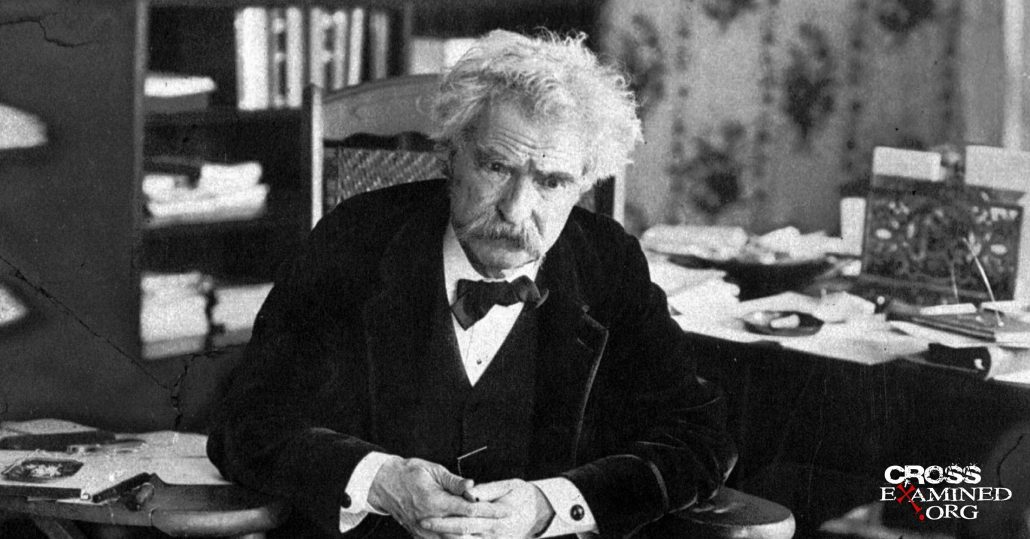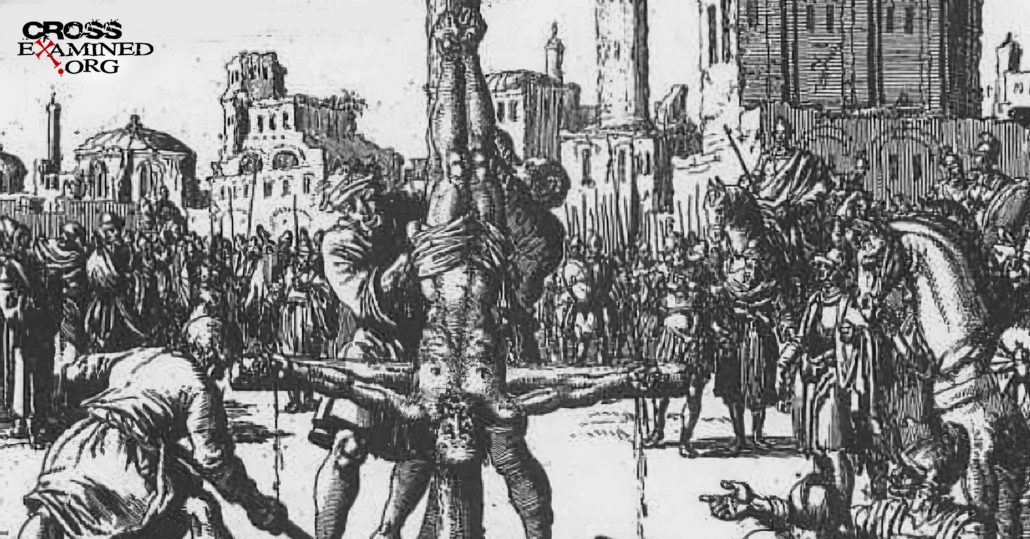By Alex McElroy
As long as there have been humans living in groups, there has been conflict. At times, this conflict has escalated to the level of the Holocaust or wars. Without guidance, individuals and countries alike can and have ventured into disappointing methods of diffusing conflicts. Theologians have at times given humanity, and the church specifically, the tools and means to navigate difficulties present in modern society. It is not an option for the Christian to retreat from society because nowhere is Christ more visible than in how His church responds to conflict and those negatively impacted by it. Scripture has also made it clear that although there should be a marked difference in how the Christian lives in the world, he or she is not of the world (John 17:15-16).
When the church, who in practicality is the people, do not actively exhibit what it means to be Christ-like in every facet of society, gaps are formed that the world eventually fills. The modern resurgence of atheism can be largely traced to the disengagement of Christians due to the privatization of their religious lives. Much can be learned from Dietrich Bonhoeffer, who attempted to rouse Christians to be vocal about their beliefs and active because of those beliefs. In response to the church’s tangible detachment from society Dietrich Bonhoeffer promoted Christian engagement with the increasingly secular world.
The Cause for Bonhoeffer’s Theology
Bonheoffer was able to centralize the indispensable message contained within the Gospel by removing the external enclosures in which some had tried and do try to contain it. In examining Eric Metaxas’s biography of Bonhoeffer, Duff notes, “Metaxas betrays one of the most enduring qualities of Bonhoeffer’s theology (that it attracts and challenges a broad spectrum of Christian readers—from theologically liberal to theologically conservative) by claiming Bonhoeffer for conservative evangelicals alone.”[1] Regardless of one’s political alignment or theological bent, it is clear that those presuppositions were not of great concern to Bonhoeffer. His focus was Christ and action. A confident Christian should be an active Christian, undeterred by societal pressures, and unhindered by an overwhelming allegiance to religious rituals.
Many theologians have attempted to illuminate the proper balance between what Christ has already done, and what he calls His church to continue doing. In attempting to find the balance between detachment from the world in order to safeguard against an erosion of spirituality, and an evangelistic engagement with the world, some have landed too far on either end of the pendulum. Knight writes,
Protestants especially have, at times, struggled to articulate the significance of the daily ‘work’ of Christian life alongside the decisive and finished work of Christ. Questions of divine and human agency, formation and practice all recur here, no matter how far they had receded before the polemics of justification against a latent ‘pelagianism’, and failure to attend to the gap between salvation as divine act and as daily passage can unwittingly tend toward cheapened grace, static spirituality and threadbare accounts of sanctification.[2]
Bonhoeffer sought to integrate the variety of focal points present within Protestantism. For Bonheoffer this was not an, ‘either or’ ideology, but a ‘both and’ philosophy. In outlining this religionless Christianity, Bonhoeffer was seeking to remove the weight of unnecessary dogma, if it presented itself, in order to present Christ to the world. Olson notes, “He rejected as unfaithful to the gospel any striving for detached, disengaged piety that viewed Christians as above or better than the rest of humanity.”[3] Therefore in Knight’s analysis of how Bonhoeffer addressed the issue of the inward and outward balance each Christian needs to possess, he writes, “Bonhoeffer’s advocacy of a committed and distinctive form of Christian piety…required the discipline of prayer, confession, worship, and the regular study of the Bible within the fellowship of the church. Yet…the ecclesial formation of the Christian was oriented toward the world.”[4]
Bonhoeffer sought to reattach a detached church from a secular world in a tangible way, which was reeling from the effects of war and Nazism. His writings, with such a high Christology, reflect his devotion to the Christian message and highlight the potential of the church’s impact on society. On June 19, 1932, Bonhoeffer preached a sermon in which he said:
You may suspect that those who are constantly seeking things above may lose contact with the ground under their feet. ‘If he reaches up and raises his head to touch the stars, then his unsure feet will have no foothold, and he will be the plaything of clouds and wind.’ No matter how the individual feels about it, human society suspects with good reason that people with their heads in the clouds like that might be useless extra mouths to feed, instead of using burning hearts and a strong arm to create order and progress here on earth, that they would dream of a better afterlife and would be unfit for the great revolutionary action that each generation must take, smashing old tablets and setting up new and better ones.[5]
It has been said that sometimes a Christian can be so heavenly-minded that he is no earthly good. Bonhoeffer sought to reduce that possibility by calling for the Christian not to get stuck in the clouds, but to be present amongst the people.
Bonhoeffer’s Relevance in a Postmodern Society
Olson writes, “According to Lyotard, postmodernism is “incredulity towards meta-narratives.”[6] Although Bonhoeffer was addressing the influence of modernity and secularism prevalent in his day, his theology is abundantly relevant in the present postmodern culture. Perhaps being overwhelmed with the range of opinions presented as well as the various mediums through which people view those opinions and ideologies (i.e. television, YouTube, social media, etc.), many have become numb to the idea of truth. It is also possible that many are not able to separate the propositions contained within a particular worldview with the actions of the practitioners of that worldview. With regards to Christianity it is sadly a fact that, at times Christians behave in a less than Christ-like manner. However, this should not dissuade one from adopting the principles of Christianity or from coming to know the person of Jesus Christ in a salvific way. It seems then, that one primary manner through which the postmodern non-religious individual might come to know Jesus is through a relational engagement with someone who already knows Him. It is in this way that Bonhoeffer’s theology is extremely relevant to today’s theologians and to today’s church.
Regarding the issue of how the Christian today can attract her friend to know Jesus, in spite of her own shortcomings or the church more broadly, Bonhoeffer offers the following directive. He writes, “Strict exercise of self-control is an essential feature of the Christian’s life.”[7] It does matter how one lives. Words are often not heard until their truth-value is first felt. In other words, the Christian in a postmodern world needs to demonstrate, by way of love, service and devotion what it looks like and what cost he gladly accepts in his service to Christ. This will affirm to the non-Christian that Christianity is not another metanarrative to be thoughtlessly lumped in with the others. It is a lifestyle in relationship with the truth, and is therefore, the means through which the truth in love is manifested. Bonhoeffer goes on to say, “As brother stands by brother in distress, binding up his wounds and soothing his pain, so let us show our love towards our enemy. There is no deeper distress to be found in the world, no pain more bitter than our enemy’s. Nowhere is service more necessary or more blessed than when we serve our enemies.”[8] This is a Christian reality that is difficult to perfect, but that does not disavow the implications of his sentiment.
If one assumes that truth is relative, which is common in a postmodern world, this notion can only be proven false when an intellectual response is combined with an existential response. In other words, mere facts will often not be enough to convince a skeptic that he should alter his worldview. However, existential experience, which is lived in relationship with someone of another worldview, will often do more to shift the mind of one whose heart has been impacted by another individual. By engaging in all areas of influence within the society, the Christian can increase the truth-value of the Gospel message. Communication is not just verbal, but it is also visible. However, such engagement can pose a risk to a Christian, and it introduces the potential for frustration and heartbreak. No one knew this better than Bonhoeffer, who paid with his life by being hanged, after being accused of conspiring to kill Hitler. Krötke wrote,
Nevertheless, such an action remains a ‘venture’. It cannot ‘take cover’ beneath normalcy or a claim to legal legitimacy. A person who takes this risk upon himself no longer has any security in this world. Such a person is completely thrown back on trusting in the God who in this extraordinary situation has moved the person to stand up against a horrible status quo. For Bonhoeffer, such a risk becomes possible only by placing it into ‘the divine guidance of history.’[9]
Olson notes that postmodern theology “must be done in community. It cannot be an individual enterprise.”[10] Bonhoeffer produced a theology centered on engaging in community with those who are not subservient to the dictates of the church. Engagement precedes indoctrination. In this way Bonhoeffer’s theological emphasis provides tremendous guidance for how the Christian of today can speak, within the context of community, with the non-Christian when she experiences racism, sexism, classism or general despair. Likewise, the Christian can speak to the pain of one who is sick, grieving, loses a job or has been unable to break the bonds of sensuality. Once theology exits the lecture hall and enters the town hall, the Christian and thereby the Gospel will be welcomed to the table. Bonhoeffer writes, “Today we have villains and saints again, in public view…That evil appears in the form of light, of beneficence, of faithfulness, of renewal, that it appears in the form of historical necessity, of social justice, is for the commonsense observer a clear confirmation of its profound evilness.”[11] In other words, the ethicist cannot get out of his own way in trying to undermine the ethics of another man. This is very similar to the postmodern mindset, which often in its assertion refutes those very assertions. For example, to make the claim that there is no truth is in and of itself a claim to truth. Therefore, by making the claim, one refutes the essence of that very same claim and that whole proposition becomes meaningless.
There is truth, and in Christianity, truth is not simply professed in an ethereal sense, but as a person. Jesus is the truth and even the postmodern man must live within the realm of some certainties. Truth should always undergird those certainties and, Bonhoeffer provides a method through which even the most ardent skeptic can be introduced to the truth, which shatters his disbelief that the truth could ever be singular. Bonhoeffer illustrates this well in another sermon, where he said,
Then it says again, ‘but have not love, I am nothing.’ Insight, knowledge, truth without love is nothing – it is not even truth, for truth is God, and God is love. So truth without love is a lie; it is nothing. ‘Speaking the truth in love,’ says Paul in another letter [Eph. 4:15]. Truth just for oneself, truth spoken in enmity and hate is not truth but a lie, for truth brings us into God’s presence, and God is love. Truth is either the clarity of love, or it is nothing.[12]
References
[1] Nancy Duff, “Letters and Papers From Prison” Theology Today, Vol. 69, Issue 4 (Jan. 2013): 533.
[2] M. J. Knight, “Christ Existing in Ordinary: Dietrich Bonhoeffer and Sanctification.” International Journal of Systematic Theology, Vol. 16, Issue 4 (October 2014): 414.
[3] Olson, Journey of Modern Theology, 432.
[4] Knight, Christ Existing in Ordinary, 415.
[5] Isabel Best, The Collected Sermons of Dietrich Bonhoeffer. (Minneapolis: Fortress Press, 2012), 50.
[6] Olson, Journey of Modern Theology, 503.
[7] Bonhoeffer, The Cost of Discipleship, 169.
[8] Ibid., 149.
[9] Wolf Krotke, Karl Barth and Dietrich Bonhoeffer: Theologians for a Post-Christian World. (Grand Rapids, MI: Baker Academic, 2019), 172.
[10] Olson, Journey of Modern Theology, 644.
[11] Clark Elliston, Dietrich Bonhoeffer and the Ethical Self. (Minneapolis, MI: Fortress Press, 2016), 12.
[12] Bonhoeffer, Sermons of Dietrich Bonhoeffer, 144.
Recommended resources related to the topic:
Counter Culture Christian: Is There Truth in Religion? (DVD) by Frank Turek
Is Morality Absolute or Relative? (Mp3), (Mp4), and (DVD) by Frank Turek
How to Interpret Your Bible by Dr. Frank Turek DVD Complete Series, INSTRUCTOR Study Guide, and STUDENT Study Guide
How Philosophy Can Help Your Theology by Richard Howe (MP3 Set), (mp4 Download Set), and (DVD Set)
Alex McElroy is an international speaker, apologist, leadership advisor, author of the book “Blueprint for Bible Basics” and writer for the blog “Relentless Pursuit of Purpose.” He is one of the founding Pastor’s of at Engage Community Church and formerly the Pastor of Education at New Life Covenant Southeast Church, led by Pastor John F. Hannah with 20,000 members. For over 14 years Alex has served in both youth and adult teaching ministries. Alex has also trained hundreds of teachers and ministers so they are equipped to deliver lessons in Biblical study, purpose, leadership, and Apologetics in order to maximize their effectiveness in and for the Kingdom of God. He is a firm believer that everyone is born on purpose with a purpose. He teaches people all over the world to find the purpose God has placed inside of them and to deliver it to the world.










